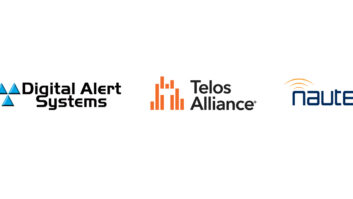As we go to press, stocks are dumping on coronavirus news (though there are analysts who think coronavirus was merely the trigger and the bullet was already in the chamber; i.e.more long-standing factors such as sliding bond yields).
Regardless, coronavirus has for the moment drawn attention in part to our industry. Along with the tariffs, there’s been pressure to consider diversifying away from China on the supply side (but obviously we wouldn’t want to do that on the market side). This could affect manufacturers in our industry who depend on parts or products from China. Panel production is disrupted, as reported by IHS. The market is expecting 30 percent shortage in labor with production numbers plummeting for Q1. Unit production of televisions used for signage is expected to decline over 2019 levels by 10.9 percent, interactive flat panels by 20.9 percent, signage and information display by 28.5 percent. The videowall segment is expected to fare the worst, with manufacturing of these products expected to drop by a full 46.5 percent, as reported by Electronics Purchasing News. For perspective, this is on the heels of six years of double-digit growth.
At the same time there’s been new life for virtual interaction. Zoom had its best trading day in 8 months, which is saying something when you consider the last 8 months. Videoconferencing is on people’s minds, as an alternative to the real and perceived risks of travel. This awareness could continue after the virus is contained—however long that will take—as people consider other factors including cost, the burden of mass travel on the planet, and the burden of travel on some employees.
I’ve seen news of worship services being conducted virtually and universities worldwide are already ramping up distance learning to cope in the short term. That can translate to the long term, because once the infrastructure leap is made in response to an emergency, other benefits become clear. I’ve even read that the Chinese concert industry has swiftly moved to online concerts for people who are not going anywhere by choice or quarantine.
At the moment, these options are driven by suffering and fear. I heard a radio interview with a group of Taiwanese citizens stuck in China and literally on lockdown in a building where some had already died. The woman who was interviewed could not go out for food and was afraid to open the door to social workers in case she would encounter the infection that was “everywhere outside”. It was heartbreaking to hear.
There is tragedy in this, and misinformation, and lives disrupted. So I’m definitely not selling it as a business opportunity. It is, however, a chance to participate in one of the big global challenges. There are a lot of us, and many more are on the way in the decades to come. Whether it is coronavirus or the fire next time, humans will need to strike a balance between virtual and physical lives and interaction. Both are important, but understanding when each is appropriate and valuable will require more conscious choice. We can help with that qualitative equation and must approach systems with that larger picture in mind.









